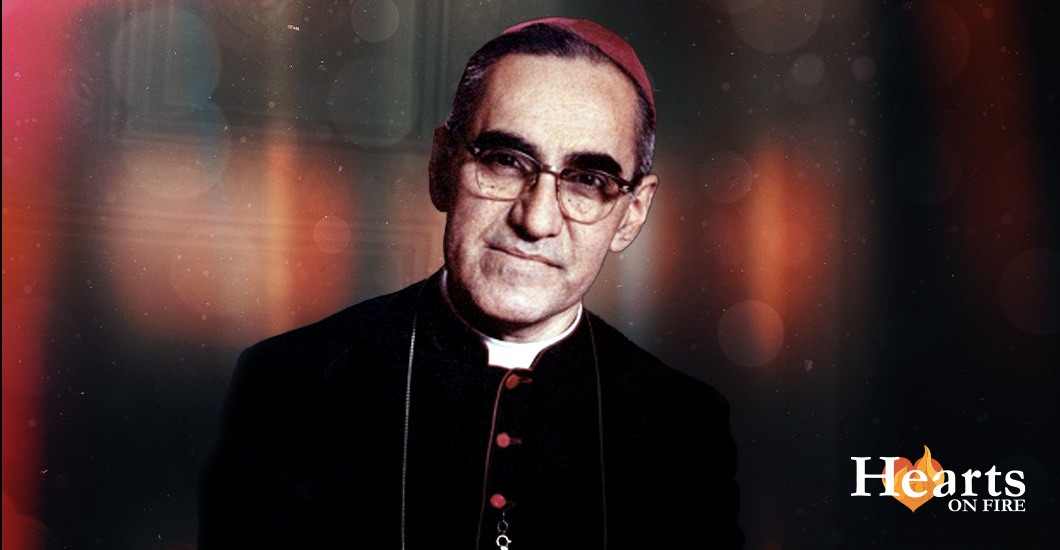Trending Articles
The Gift of Prophecy
In 1 Corinthians 12:4-11, Saint Paul writes, “There are different kinds of spiritual gifts but the same Spirit; there are different forms of service but the same Lord; there are different workings but the same God who produces all of them in everyone. To each individual the manifestation of the Spirit is given for some benefit. To one is given through the Spirit the expression of wisdom; to another the expression of knowledge according to the same Spirit; to another faith by the same Spirit; to another, gifts of healing by the one Spirit; to another mighty deeds; to another prophecy; to another discernment of spirits; to another varieties of tongues; to another interpretation of tongues. But one and the same Spirit produces all of these, distributing them individually to each person as He wishes.”
Purpose of the Spiritual Gifts
These gifts—described by many as “Charisms or Charismatic gifts”—are given by the Holy Spirit to individuals for service or ministry to edify or build up, to encourage and to comfort the body of Christ (1 Corinthians 14:3-5). The word “gift” in Greek is “charismata,” meaning “favor freely given to whomever the Lord chooses.” It is not something that the recipient has earned or deserved. In the “Catechism of the Catholic Church,” 799, the Church asserts, “Whether extraordinary or simple and humble, charisms are graces of the Holy Spirit which directly or indirectly benefit the Church, ordered as they are to her building up, to the good of men and to the needs of the world.” The gifts of the Spirit manifest the presence and power of God in our midst. Jesus says in Acts 1:8, “But you will receive power when the Holy Spirit comes upon you, and you will be My witnesses in Jerusalem, throughout Judea and Samaria and to the ends of the earth.”
The Greek word for this kind of power is “dunamis,” meaning “dynamite.” God’s power is surely more potent than all powers in this world combined because God’s power is supernatural and unequalled in nature. When the Lord unleashes His power, it is always to accomplish His purpose and to establish His Kingdom. I believe that the Holy Spirit is looking for people whom He can count on to further God’s kingdom and to achieve His purposes for His honor and glory. The Documents of Vatican Council II under the Decree of the Apostolate of Lay People state, “From the reception of these charisms, even the most ordinary ones, there arises of each of the faithful the right and the duty of exercising them in the Church and in the world for the good of men and the development of the Church, of exercising them in the freedom of the Holy Spirit who ‘breathes where He wills’.”
In his homily at the closing Mass of the World Youth Day in Sydney, Australia, in July 2008, Pope Benedict XVI stated, “But what is this power of the Holy Spirit? It is the power of God’s life! It is the power of the same Spirit who hovered over the waters at the dawn of creation, and who, in the fullness of time, raised Jesus from the dead. It is a power which points us, and our world, toward the coming of the Kingdom of God.”
Prophetic Gift
Let me focus more specifically on the gift of prophecy. Saint Paul says “Pursue love, but strive eagerly for the spiritual gifts, above all that you may prophesy.” 1 Corinthians 14:1. In Acts 2:17-18, we read about Peter standing up with the 11 and reiterating what the prophet Joel had prophesied, “It will come to pass in the last days, God says, that I will pour out a portion of my Spirit upon all flesh. Your sons and your daughters shall prophesy, your young men shall see visions, your old men shall dream dreams. Indeed, upon my servants and my handmaids I will pour out a portion of my Spirit in those days, and they shall prophesy,” To prophesy means to speak or sing a message from God under the unction or direction of the Holy Spirit. Simply put, to prophesy is to be a spokesperson for God. However, not all who prophesy are prophets but all prophets must prophesy. Some, who are called into the prophetic office by the Lord, are continually using the gift of prophecy and other gifts of revelation such as the word of wisdom, word of knowledge and discernment of spirits in their lives and ministries.
Prophecy may forth-tell or foretell the truths from God. A prophecy that forth-tells means a message that does not necessarily pertain to the things in the future. An example of this is when Jesus, from the Cross, told the “good thief.” “Amen, amen, I say to you, today you will be with Me in Paradise,” Luke 23:43. On the other hand, foretelling relates to the things or circumstances that will come to pass in the future. An illustration of this is found in Acts 11:28, “One of them named Agabus stood up and predicted by the Spirit that there would be a severe famine all over the world, and it happened under Cladius Caesar.”
I was once a recipient of this type of prophecy that foretells about the future. After my wife, Chita, and I experienced the baptism in the Holy Spirit back on November 11, 1984, we started to pray together. On December 8, 1984, while we were praying, my wife came up to me and started prophesying, “My son, do not be afraid. My name is Jesus and I’m talking to you through your wife. I’m going to use you to heal millions in My name. Believe my son that this will happen and be humble always. You will preach the gospel in My name. Many will come to ask for healing. Heal them in My name because healing is good news. You will travel far and wide. You may find this hard to believe, but remember, for Me nothing is impossible.”
Soon after, I asked her what had prompted her to say those words to me. She said, “I only repeated what I heard the Lord was saying in my ‘inner being’. To date, I have been to 39 countries, preaching and proclaiming the gospel and healing the sick in the name of Jesus, in spite of my many limitations. The Lord had opened the doors for me to start traveling and ministering internationally in the year 1991, exactly seven years after I received the prophecy about the works that the Lord wanted me to do for Him and for His Kingdom.
A prophecy may also come forth through someone who speaks in “tongues.” In 1 Corinthians 14:5, Saint Paul says, “Now, I should like all of you to speak in tongues, but even more to prophesy. One who prophesies is greater than one who speaks in tongues, unless he interprets, so that the church may be built up. When someone speaks in tongues in a prayer meeting, for instance, the gift of interpretation of tongues should also be operative to make the message in tongues understandable to the hearers. The person who is speaking in tongues may give the interpretation under the inspiration of the Holy Spirit or somebody else in the congregation may be prompted to do it. It should be noted that interpretation is not necessarily a translation of the message delivered through speaking in tongues.
How to Hear the Voice of God
The Lord wants to talk to us and He is always speaking to us! In the book of Genesis, we read these words many times, “Then God said.” In John 10:27, Jesus says, “My sheep hear My voice; I know them and they follow Me.” Jesus also says, “Amen, amen, I say to you, many prophets longed to see what you see but did not see it, and to hear what you hear, but did not hear it” (Matthew 13:17).
Our God wants to have fellowship with us. Jesus died on the cross for us not only to set us free from the bondage of sin and death, but also to bring us to a personal relationship and fellowship with Him. The Lord is more delighted to speak to us than we are to hear from Him. Most of the time, the Lord communicates with us through a still small voice from within our spirit. A person may perceive it as a sudden impression or a “sense” of something that God is saying or a passing thought. If we open ourselves, our hearts, our senses and our minds to God and be obedient to Him, we will surely hear His voice. The Lord can give us an impression or a vision or a thought. He can also communicate with us through dreams, through scriptures, through our circumstances, through other people and even through His audible voice, which is very rare indeed. He is sovereign and He has no limitations.
Not long ago, I had the opportunity to conduct a Parish Mission in Sarasota, Florida. While giving a talk on “Repentance and Forgiveness,” the Lord spoke into my heart that there was a person in the congregation who tried to commit suicide and that the Lord was setting him free from the feelings of guilt and self condemnation. When I received the words, there was a deep conviction in my heart that they came from the Lord. I announced what the Lord had said and a man named John came up to the altar, with tears in his eyes, to acknowledge everything that I said. I sensed that John tried to do it not only once but twice, and he admitted it when I asked him about it. That day, he received an emotional and spiritual healing and an assurance that the Lord, in His mercy and love, had not condemned but rather had forgiven him. Recently, John told me that his life had been changing rapidly for the better since then because he had grown closer to the Lord.
Discerning of Spirits
There are four sources of voices that we hear in the spiritual realm—namely, the Holy Spirit, the human spirit, the evil spirits and holy angels. In 1 John 4:1, the word of God says, “Beloved, do not trust every spirit but test the spirits to see whether they belong to God, because many false prophets have gone into the world.” In 1 Thessalonians 5:19-21, Saint Paul says, “Do not quench the Spirit. Do not despise prophetic utterances. Test everything; retain what is good.” Both the “giver” of the prophecy and the “receiver” or the hearer should discern the words. A very careful and thorough discernment must be undertaken, especially in cases of directive prophecies, to make sure that they are from God and not from false prophets. To discern rightly and accurately we need the wisdom and assistance of the Holy Spirit who “guides us to all truths.”
Following are some of the practical guidelines in judging or discerning a prophecy:
◗ It must edify or build up and give comfort. If a prophecy is negative and condemnatory, it is a sure sign that it is not from God.
◗ It must bear good fruit. “Every tree that does not bear good fruit will be cut down and thrown into the fire. So by their fruits, you will know them” (Matthew 7:19-20).
◗ It must be scriptural. Jesus says, “My words, they are Spirit and they are life” (John 6:63).
◗ It must conform to the teachings of the magisterium of the Catholic Church. The magisterium is the teaching authority of the Church.
◗ It must produce peace. Saint Paul says, “God is not the author of confusion but of peace” (1 Corinthians 14:33).
◗ It must ultimately bring glory and honor to God. Saint Paul states, “So whether you eat or drink, or whatever you do, do everything for the glory of God” (1 Corinthians 10:31).
◗ It must strengthen the faith of both the “giver” of the prophecy and the “hearer or hearers.” “Faith comes from what is heard and what is heard comes through the words of Christ” (Romans 10:17).
Conclusion
The gift of prophecy, if properly used, has the power to change people’s lives. I believe that the Lord has chosen and appointed us, in spite of ourselves, to be His instruments. The world is waiting to experience the life-changing and life-giving power of the Holy Spirit. Are you willing to say “Yes” to the Lord and be His vessel to change the world around you?
Robert Canton is a council member of International Catholic Charismatic Renewal Services (ICCRS) representing the English-speaking North and Central America as well as the Caribbean countries. He is one of the 14 Council members who represent ICCRS to all the continents in the world. Canton also founded the Robert Canton Ministries, a non-profit organization aiming to evangelize the entire world through teaching, preaching and healing in the Name of the Lord Jesus Christ. He and his family have been residents of Stockton, California, since 1973.
Latest Articles
Want to be in the loop?
Get the latest updates from Tidings!








